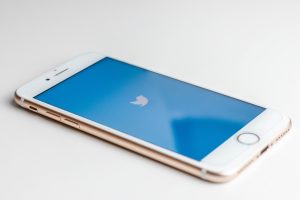 Photo by Sara Kurfeß on Unsplash
Photo by Sara Kurfeß on Unsplash
Communicating on social media sites is relatively new to me. My lack of skills and fear of the unknown pushed me to avoid Facebook, Twitter, blogs and other social media sites altogether. Email and texting were within my comfort level; that is until I started this course. Having the opportunity to build a blog and set up a Twitter account were huge steps for me; and I will admit I am enjoying the process of learning how to use them, albeit this is daunting at times. I also recognize the opportunities that these digital forms of communication can provide for me, professionally, to enhance my teaching practices. As I stumble along navigating through the world of social media, I have learned both the positive and negative sides of using Twitter, in a professional situation.
Reading Twitter Use and its Effects on Student Perception of Instructor Credibility, opened my mind about the opportunities social media platforms can create in terms of instructor-student communication. Although my initial gut reaction when I read the title was, “Is that even appropriate?” the article pointed out several advantages of instructors’ usage of social media platforms. For example, it has enabled students to see a more common, or human side of their instructor. Many students interpreted this online communication as a sign that their instructor was not only passionate about his/her teaching area, but cared about students’ success since he/she took the time to pass on extra course related material or updates. Consequently, students’ feeling of care, resulted in more engagement in their course. The use of Twitter to communicate with students definitely peaked my interest. Further readings illustrated how instructors use Twitter, amongst themselves, for scholarship purposes; an activity I assumed (out of my own naïveté), was done more so in boardrooms or via email because of its enormity and confidentiality. Although Twitter as a form of communication between academic scholars provides easy access and fast response times, these transactions are not without issues.
Instructors’ use of Twitter enables them to easily develop networks, connect with other scholars, share ideas, create projects and learn from each other. Unfortunately, however, Twitter has become an open stage, where growing discontent is acted out from behind the safety of one’s screen.
Bonnie Stewart’s, In Public: The Shifting Consequences of Twitter Scholarship, discusses the open and public conversations that some professionals have online; and how this once relatively quiet and safe space for academics to converse, is increasingly public, where online feuding is more common as anyone can join. Stewart’s article left me feeling disappointed that educated professionals (who in my opinion should now better), would behave in such a manner, as to call out those they disagreed with online. The fact that individuals get riled up so fast, implicate each other, and their disciplines, to me seems unethical. I question, would they behave this way face to face? Is the screen a mere safety net? Would they not be worried about their comments personally or professionally? Furthermore, the fact that the online fiasco, Stewart examined, quickly developed into a mob mentality style of arguing, while creating polarized groups of thought, where no one could stand in the middle, was disheartening. Adults should know better. Academics using Twitter as a platform from which to launch their rants, and which can quickly escalate, are detrimental not only to those involved, but also to the development of the scholarship itself. What could bring value to individuals, groups or society as a whole, could be damaged by negative online tweeting. Unfortunately, this public, online, behaviour is accepted by some; and it ultimately affects the stage on which academic debate may continue to occur and be of benefit.
As educators, we are constantly expected to be mindful of our behaviour, not only in the public, but also online. Our union makes it very clear, that as teachers, there is a code of ethics and we are to follow it. Furthermore, there is a protocol to follow if we disagree with one another; and going online and calling each other out, is not part of the protocol process. Teachers are held accountable for their actions, whether done privately or publicly, as we are looked upon as mentors or models to young learners. Educators at both the elementary and secondary levels, provide countless reminders to students to make sure their online behaviour is appropriate. At the high school level, students are made aware that inappropriate online behaviour could implicate their post-secondary applications, scholarship applications, and future job opportunities.
Although I am excited about my new and developing online skills, I do take Stewart’s article seriously. After all, it is one of the reasons I stayed away from online platforms. The acts of arguing, degrading, and calling people out in public are not OK. Digital appropriateness, is important; and it doesn’t matter if you are a high school student or a tenured university professor.
